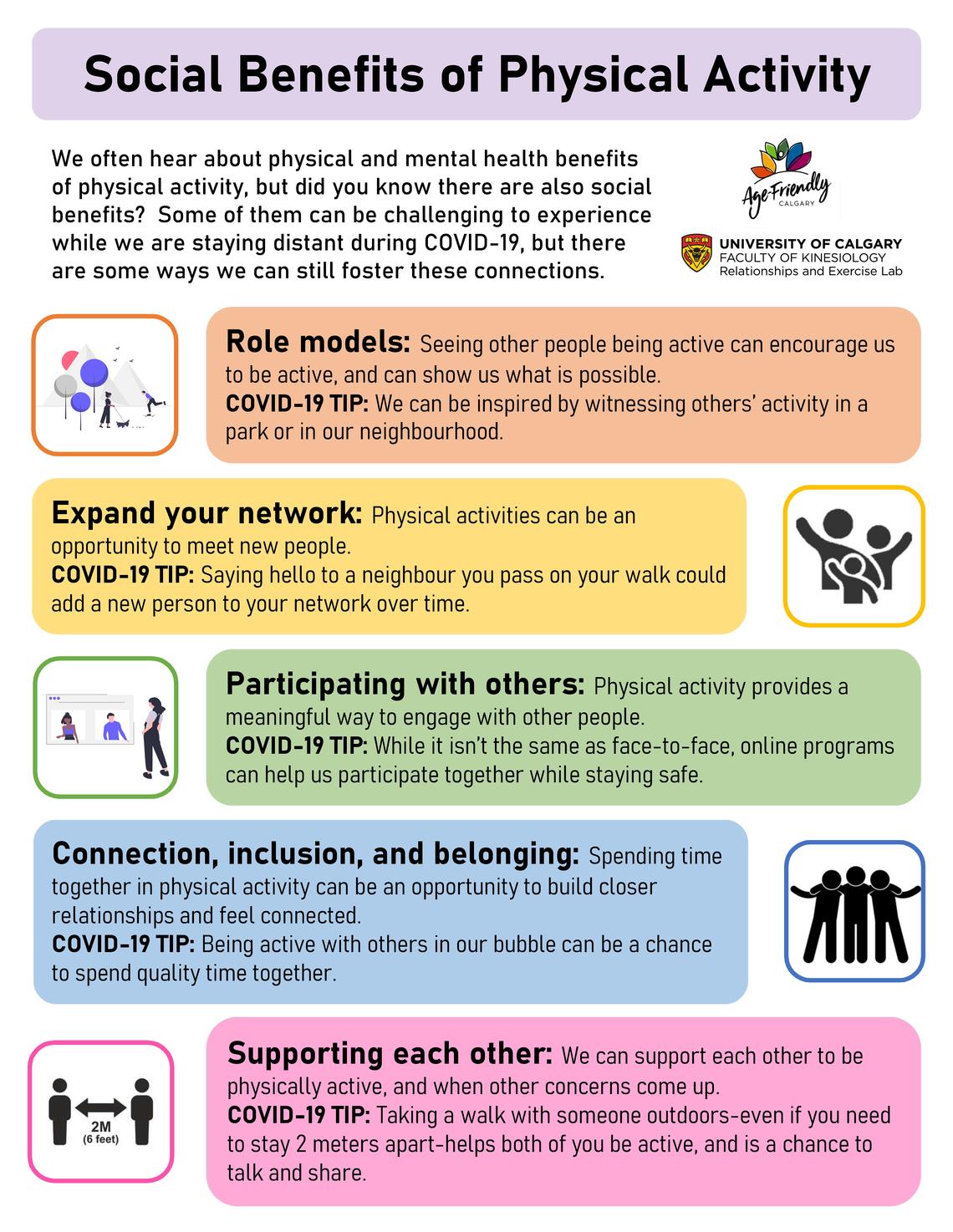June 11, 2021
Staying physically active and socially connected a challenge for Calgarians over 65

Regular gym-goers at City of Calgary recreation facilities, like Audrey Evans, have been missing out during the pandemic. “I’ve really been missing the gym. I used to do four days a week: two days in the weight room and on the treadmill, and two days of fitness classes,” says Evans, who is a frequent user of the Thornhill Aquatic and Recreation Centre.
Part of what Evans is missing about her fitness routine is the chance to visit with friends and instructors. She’s making do with regular walks with a friend, but the 77-year-old says it’s not the same as her usual gym visits.
June 7 to 13 is Seniors’ Week in Alberta, and this year's theme is Creating Connections. For older adults, social connection is an essential part of staying healthy and living a full and happy life. Dr. Meghan McDonough, PhD, is researching how older adults are creating and maintaining social connections as they stay physically active during COVID-19.
“The work that I do is all about social relationships and physical activity, and how the social relationships that we have can support our activity and well-being,” says McDonough, professor in the Faculty of Kinesiology. “The activity that we do happens in a social context, and it’s how we can form connections with other people.”

Meghan McDonough, standing, and student analyze data. Photo taken pre-COVID 19.
Faculty of Kinesiology
Evans has lost two of her key points of social connection — the gym and her choir — as a result of COVID-19. She’s not alone: in 2019, there were more than 438,000 visits to City of Calgary recreation facilities by adults over 65, but since March of last year, centres have either been closed or had significantly reduced offerings.
“Physical and social activity has declined during COVID-19,” says McDonough. “In this research project, we’re looking at how we are adapting and can continue to adapt to do the best we can to recreate these social connections, even though it’s harder to do with current limitations.” McDonough’s project was awarded a SSHRC Partnership Engage grant earlier this year.
There are five main social benefits of group physical activity that McDonough has identified: meeting new role models; expanding personal networks; participating with others; supporting each other; and connection, inclusion, and belonging.
The City of Calgary is one of McDonough’s partners on this project, and they are keen to learn how they can expand the support they are offering older adults. “COVID-19 has resulted in significant changes to recreation participation, particularly with populations at high risk of serious complications from COVID-19 such as older adults,” says Jarret Hoebers, manager, regional operations at Calgary Recreation.

Social Benefits of Physical Activity Infographic
Meghan McDonough
McDonough points out that even when the pandemic has ended there will still be many older adults who will have barriers to accessing group physical activity, such as affordability, location, or transportation. Her research findings during COVID-19 will continue to provide value, even once recreation centres begin to re-open.
In a survey of 200 age 65-plus adults who were regular users of City recreation facilities, McDonough found that just 34 per cent had tried to fill the gap with online fitness programs. “The field of online technologically-assisted connection has been growing for a long time, and the pandemic has accelerated everything,” says McDonough. “But putting things online doesn’t solve it for everyone. It’s going to work for a lot of people, but we need to have some other ideas and solutions, too.”
“Identifying the challenges faced by this population is useful as we move to recovery,” says Hoebers. “We need to understand what we can do to welcome and encourage older adults to re-engage in regular physical activity at recreation facilities. “
Evans will keep up her home weightlifting and walking routines until she is able to go back to her classes, but that time can’t come soon enough, she says. “I can’t wait for this to be over!”
June 7-13 2021 is Seniors’ Week in Alberta. Visit The City of Calgary website to learn more. Age Friendly Calgary and The City of Calgary also offers resources for older adults on their website.
Urban Alliance is a strategic partnership between The City of Calgary and University of Calgary to promote the seamless transfer of cutting-edge research between The City and the university, for the benefit of all our communities. Urban Alliance energizes connections between the people who make up our organizations, and encourages us to work together to find ways to make life better for all Calgarians. Learn more
Meghan McDonough is a member of the O'Brien Institute for Public Health and the Hotchkiss Brain Institute.






